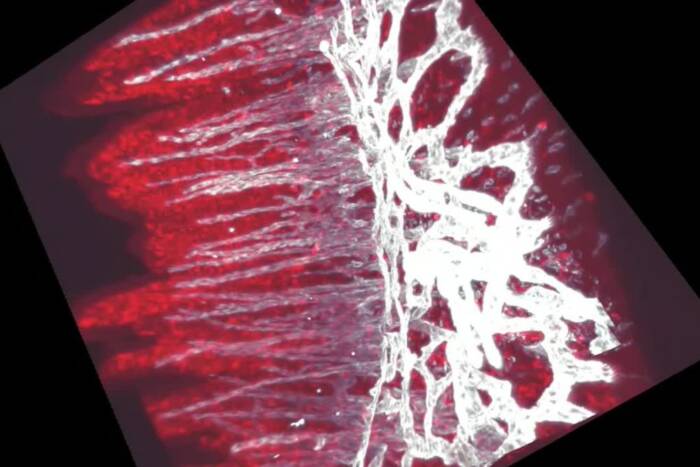Paul Greengard receives Karolinska Institutet’s Bicentennial Gold Medal
Paul Greengard, a Nobel Prize-winning neurobiologist at Rockefeller University, will receive the Karolinska Institutet’s Bicentennial Gold Medal, the Swedish medical university announced today. This medal is the highest award conferred by the Karolinska Institutet during its 200th anniversary celebrations, and recognizes the work of an individual not permanently located at the Karolinska Institutet, who has contributed to and has achieved acknowledged eminence in the university’s activities.
“Dr. Greengard has, in many ways, had a unique influence on the scientific activity at our university,” says Harriet Wallberg-Henriksson, president of Karolinska Institutet. “He has collaborated with and mentored generations of Karolinska Institutet’s scientists, who have been inspired by his scientific leadership and by his extraordinary capacity to reveal the biological meaning and medical implications of unexpected observations from the laboratory.”
Greengard, Vincent Astor Professor and head of the Laboratory of Molecular and Cellular Neuroscience, shared the 2000 Nobel Prize in Physiology or Medicine for his contributions to understanding how neurotransmitters work. His lab is devoted to discovering the molecular basis of communication between neurons in the mammalian brain, the molecular defects responsible for various neurological and psychiatric disorders and the molecular mechanisms by which neuro- and psychoactive drugs produce their actions.
Greengard received his Ph.D. from The Johns Hopkins University. He joined Rockefeller in 1983 and has been director of the Fisher Center for Alzheimer’s Disease Research since 1995. He is a member of the National Academy of Sciences and the American Academy of Arts and Sciences, and is the recipient of numerous awards, including the Metropolitan Life Foundation Award for Medical Research, the Charles A. Dana Award for Pioneering Achievements in Health, the Ralph W. Gerard Prize in Neuroscience from the Society for Neuroscience, The National Academy of Sciences Award in the Neurosciences and the 3M Life Sciences Award of the Federation of American Societies for Experimental Biology.
In 2000, Greengard and his wife, sculptor Ursula von Rydingsvard, in partnership with generous supporters of the university established the Pearl Meister Greengard Prize. Named in memory of Greengard’s mother, the prize was founded to honor women who have made extraordinary contributions to biomedical science, a group that historically has not received appropriate recognition and acclaim.
The Karolinska Institutet’s Gold Medal will be presented to Greengard on September 23rd at the residence of the Swedish ambassador to the United States in Washington, D.C.
Karolinska Institutet is one of the world’s leading medical universities. Its mission is to contribute to the improvement of human health through research and education. Karolinska Institutet accounts for over 40 percent of the medical academic research conducted in Sweden, and offers the country’s broadest range of education in medicine and health sciences. Since 1901 the Nobel Assembly at Karolinska Institutet has selected the Nobel laureates in Physiology or Medicine.


